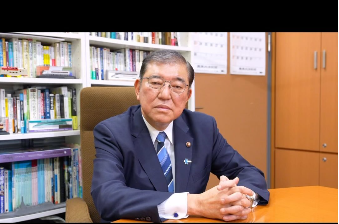
(Photo : Shigeru Ishiba (Iinstagram.com))
- Japan's snap election resulted in no clear majority, causing political instability and a drop in yen value.
- Despite losing seats, Prime Minister Ishiba pledges to continue in his role amidst economic and security challenges.
- The main opposition, the Constitutional Democratic Party of Japan, emerged as the biggest winner but fell short of a majority.
- The election results have left Japan in a state of uncertainty, with a vote on the premiership potentially held on November.
Japan's political landscape is in a state of flux following a snap election that left no party with a clear majority. The election, called by Prime Minister Shigeru Ishiba, saw his scandal-tainted coalition punished by voters, leading to a significant reshuffling of the country's government. The uncertainty has sent the yen, Japan's currency, to a three-month low as analysts brace for a period of political wrangling that could last days or even weeks.
The election results come at a critical time for Japan, the world's fourth-largest economy, which is grappling with economic headwinds and a tense security situation fueled by an assertive China and nuclear-armed North Korea. The political instability also coincides with the lead-up to another unpredictable election in the United States.
Despite the challenges, Prime Minister Ishiba has pledged to continue in his role. We cannot allow not even a moment of stagnation as we face very difficult situations both in our security and economic environments, he said at a news conference.
The Aftermath of the Election
His Liberal Democratic Party (LDP) and its junior coalition partner Komeito secured 215 seats in the lower house of parliament, a significant drop from their previous 279 seats. The decrease in support was largely due to voter dissatisfaction with a funding scandal and a cost-of-living crunch. Two cabinet ministers and Komeito's leader, Keiichi Ishii, lost their seats.
The main opposition, the Constitutional Democratic Party of Japan (CDPJ), emerged as the biggest winner of the night, increasing its seats from 98 to 148. However, this is still well short of the 233 majority. CDPJ leader Yoshihiko Noda has expressed his intention to work with other parties to try and oust the incumbents, although analysts see this as a more remote possibility.
The LDP, which has ruled Japan for almost all of its post-war history, experienced its worst election since it briefly lost power in 2009 to a precursor of the CDPJ. Ishiba, who was chosen to lead the LDP in a closely contested race last month, called the snap election a year before it was due in an effort to secure a public mandate.
Scandal and the Role of Smaller Parties
His initial ratings suggested he might be able to capitalize on his personal popularity, but like his predecessor Fumio Kishida, he was undone by resentment over his handling of a scandal involving unrecorded donations to LDP lawmakers. The LDP declined to endorse several scandal-tainted candidates in the election. However, days before the vote, a newspaper affiliated with the Japan Communist Party reported that the LDP had provided campaign funds to branches headed by non-endorsed candidates.
In the wake of the election, smaller parties such as the Democratic Party for the People (DPP) and the Japan Innovation Party (JIP), which won 28 and 38 seats respectively, could play a crucial role. Both DPP chief Yuichiro Tamaki and JIP leader Nobuyuki Baba have ruled out joining the coalition but are open to ad hoc cooperation on certain issues. Ishiba echoed this sentiment, stating that the LDP is not anticipating a coalition with other opposition parties at this time.
The DPP and JIP propose policies that could pose challenges for the LDP and the Bank of Japan. The DPP, for instance, calls for halving Japan's 10% sales tax until real wages rise, a policy not endorsed by the LDP. Both parties have also criticized the BOJ's efforts to raise interest rates and wean Japan off decades of monetary stimulus.
Looking Forward
The head of Japan's most powerful business lobby Keidanren, Masakazu Tokura, expressed his hope for a stable government centered on the LDP-Komeito coalition to steer an economy that faces urgent tasks such as boosting energy security and maintaining the momentum for wage hikes.
In a positive development, a record 73 women were elected into Japan's male-dominated parliament, surpassing the previous record of 54 set at the 2009 election. This represents a significant step forward for gender equality in the country's political sphere.
The election results have left Japan in a state of uncertainty, with no clear path forward. A vote on who will take the premiership may be held in a special parliamentary session on November 11, according to multiple ruling coalition sources. However, it remains to be seen whether Ishiba, who became premier less than a month ago, can survive after the election drubbing.
* This is a contributed article and this content does not necessarily represent the views of btin.co.in









